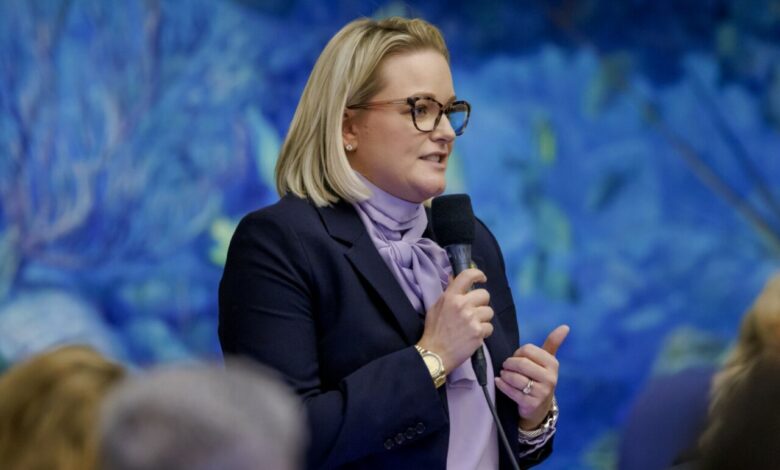Florida Democrat Hillary Cassel Switches to GOP, Bolsters Republican Supermajority
In a move that has further tilted the political balance in Florida's state legislature, Democratic Representative Hillary Cassel has announced her switch to the Republican Party, making her the second Florida House Democrat to do so this month.

In a move that has further tilted the political balance in Florida’s state legislature, Democratic Representative Hillary Cassel has announced her switch to the Republican Party, making her the second Florida House Democrat to do so this month.
Cassel, representing Florida’s House District 101, shared her decision in a statement on social media platform X. She cited the Democratic Party’s progressive shift and its perceived disconnect from the everyday concerns of Floridians as key reasons for her departure. Additionally, Cassel expressed concerns over the Democratic Party’s stance on Israel, highlighting what she describes as a failure to unequivocally support the nation amidst recent conflicts.
This switch comes shortly after Tampa state Representative Susan Valdés made a similar move, expressing frustration over being “ignored” by her former party. Valdés’ switch had already expanded the GOP majority in the Florida House to 86-34, marking the largest Republican majority in the chamber. With Cassel’s switch, the Republican supermajority now stands at 87 Republicans compared to 33 Democrats, further solidifying GOP control ahead of the 2025 legislative session.
The news has sparked a range of reactions on social media, with some posts on X celebrating the move as a sign of political realignment in Florida, while others have criticized it, calling for a special election to reflect the voters’ original choice. Former President Donald Trump publicly congratulated Cassel on X, encouraging other Democrats to consider switching parties.
This political shift underscores the ongoing dynamics within Florida politics, where the GOP has been steadily increasing its influence. The Democratic Party in Florida has faced challenges, with these party switches adding to the narrative of a state moving further to the right. Critics argue that such moves might not represent the will of the constituents who voted for these lawmakers as Democrats, while supporters see it as a reflection of broader political sentiments and frustrations with the Democratic agenda.
The implications of these switches are significant, not just for party politics but for policy direction in Florida, as the Republican supermajority now has more leverage in shaping state legislation without the need for bipartisan compromise.




